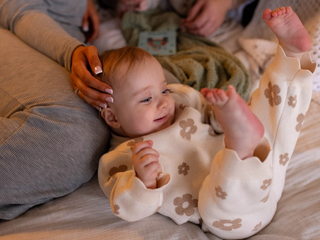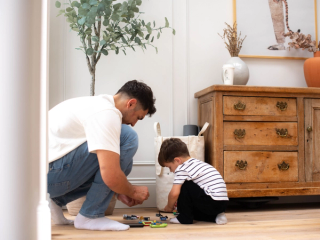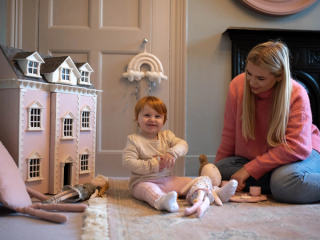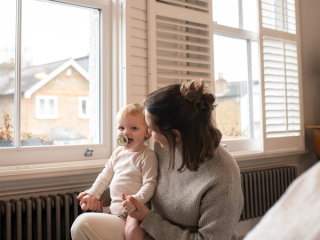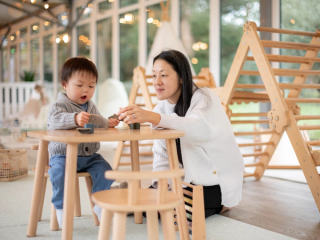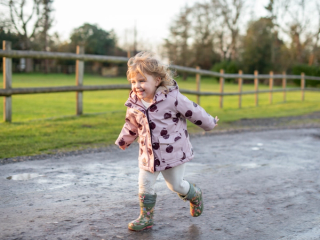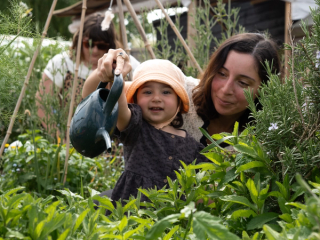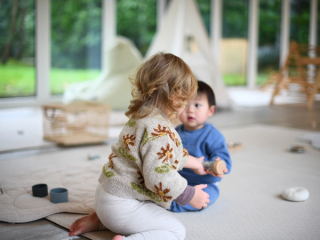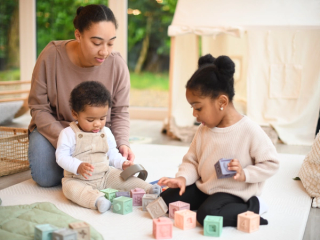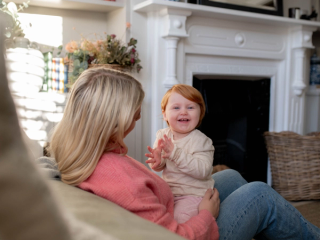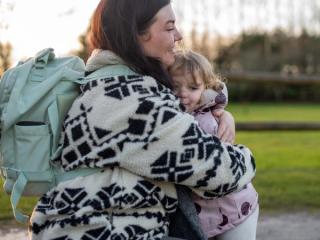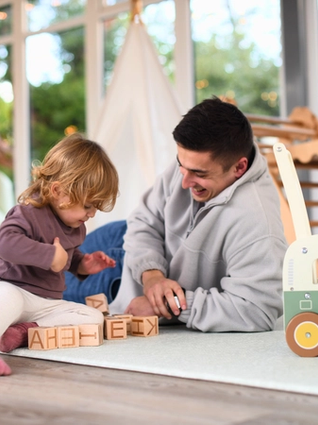
- Home
- Advice Hub
- Toddler
- Toddler Milestones
- How To Help Your Toddler Talk More
How to help your toddler talk more
In this guide, we'll share practical tips on how to support and encourage their speech development.
Every baby is unique, and the timeline for speech development can vary. Generally, babies start uttering their first words between 10 and 15 months of age. However, this doesn't mean they're silent before then.
From birth, babies engage in pre-verbal communication through cooing, babbling, and using gestures. After their first words, your child’s speech and languages skills will continue to develop, while they add more words into their vocabulary and then learn how to combine words to make phrases and sentences.
As proactive caregivers, we play a vital role in helping our toddlers learn to talk. In this guide, we'll share practical tips on how to support and encourage their speech development.
Tips and tricks
Toddlers learn to communicate when we talk and play with them throughout the day. Here are five top tips for supporting your toddler in everyday interactions:
- Get their attention: Toddlers can only focus their attention on one thing at a time, so make sure you have their attention when you’re talking to them. Try moving close to your child, calling their name or gently touching them to make a connection with them. Let your child choose the toy or activity and play with them in the way they want to play.
- Get Face to Face: Getting face to face with your toddler shows that you are interested in them, provides essential social cues and encourages language development. It also helps you to notice what your child is interested in.
- Be Responsive: When your toddler communicates with you (both with and without words), respond to show them that you have understood and that you are interested in what they are trying to tell you. Use short, simple phrases alongside actions to comment on what your child is doing. When your child uses single words, you can try to repeat what they say and add a word to model short phrases for them (e.g. they say “more”, you say “more water”).
- Narrate Your Day: Describe your daily activities to your toddler as you go about your routine. Whether you're cooking, cleaning or running errands, talk to them about what you're doing. This helps expose your toddler to a variety of words and concepts, laying the groundwork for vocabulary development.
- Read Together: Reading to your toddler is one of the most effective ways to promote language development. Choose age-appropriate interactive books with flaps, different textures and buttons to press. Sharing books with your toddler doesn’t just support their vocabulary development - they also benefit from the rhythm, intonation and opportunity to connect with you while you snuggle up together.
How can you encourage your child to talk?
Toddlers practice their communication skills when they are interacting with others, so talking and playing with your child throughout the day really is the best way to support their speech and language development. Leave plenty of time for your toddler to respond to you in whatever way they can.
What if your toddler isn’t talking?
It’s important to remember that every toddler develops at their own pace, and variations in speech and language milestones are common. However, if you have concerns about your child’s speech and language development, discuss your observations with their GP or Health Visitor. Early intervention can make a significant difference in addressing any potential delays and supporting your child’s communication skills.
Advice & tips

Want to read more? Join the HiPP BabyClub for full access to this article.
As a BabyClub member, you'll get access to a range of exclusive benefits, including:
Monthly competitions
Discounts from our Partners
Expert advice tailored to your little one's age
Weaning recipes
HiPP shop discounts*
*10% off HiPP's online shop does not apply to our First Infant, Anti-Reflux or Comfort Formula Milk.
Important notice: Breastfeeding is best. Follow on milk should only be used as part of a mixed diet from 6 months. Talk to a healthcare professional.




